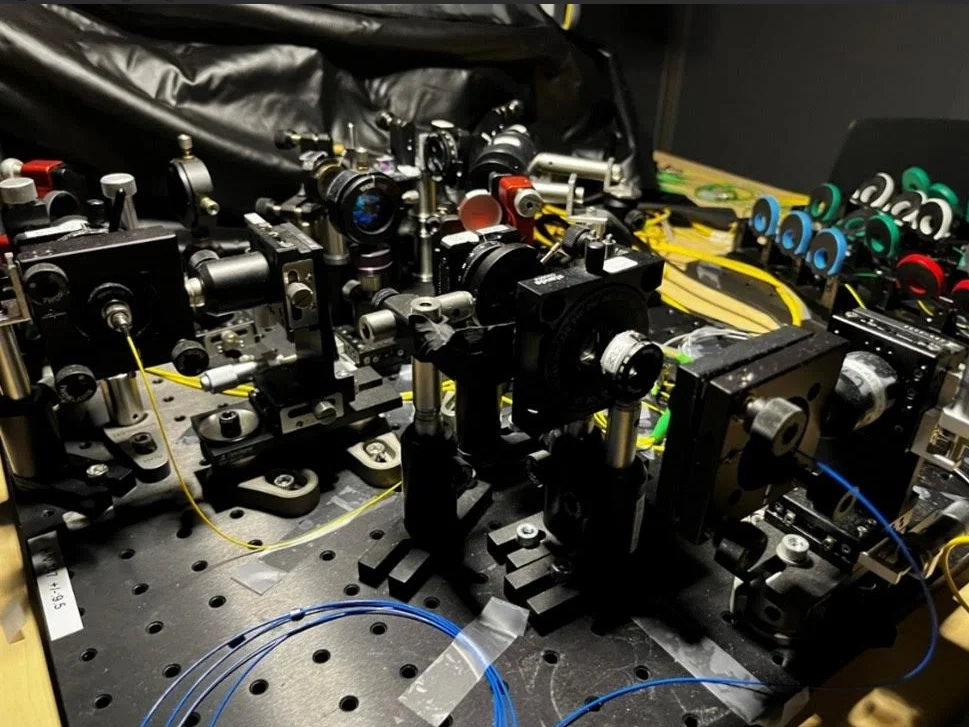Insider Brief
- PsiQuantum, founded in 2016, is focused on scaling quantum computing to one million qubits, far beyond today’s systems, to unlock its transformative potential across industries like pharmaceuticals, materials science, and energy.
- Co-founder Pete Shadbolt highlighted PsiQuantum’s success in manufacturing quantum chips in commercial semiconductor foundries, positioning them to build large-scale, photonic-based quantum systems.
- With $700 million in private funding and $600 million from the Australian government, PsiQuantum aims to build a one-million-qubit quantum computer by 2027, driving the next wave of quantum innovation.
In a recent conversation, Pete Shadbolt, co-founder and Chief Scientific Officer of PsiQuantum, went into the details on the ambitious future of quantum computing and its potential to disrupt industries. Speaking alongside quantum expert Johannes Galatsanos, Shadbolt discussed the journey of PsiQuantum, the unique challenges in building quantum computers, and how this transformative technology will eventually impact everyday life.
Since its founding in 2016, PsiQuantum has been at the forefront of quantum computing innovation.
“Quantum computing is not a get-rich-quick endeavor,” Shadbolt remarked, stressing that many people, including his co-founder Jeremy O’Brien, have dedicated their entire adult lives to making quantum computing a reality. The field, according to Shadbolt, has come a long way from its humble beginnings when getting a single qubit to work was a monumental achievement. Now, even young students can access real quantum computers via platforms like AWS and Google Cloud.

However, the real challenge lies in scaling these systems. Shadbolt explained that to achieve the promised applications of quantum computing, systems need to scale up to around a million qubits — far beyond the small systems seen today.
“You need a very large system to realize the promised applications of quantum computing, and by very large, I mean about a million qubits relative to the maybe 100 that Google has today,” he said. PsiQuantum is fully committed to this path, aiming to avoid the “science fiction-like characteristics” often associated with quantum computing by building more conventional, microelectronics-based systems.
The company’s progress has been swift, with Shadbolt proudly noting their ability to manufacture quantum chips in commercial semiconductor foundries.
“We can now build quantum chips in a commercial semiconductor foundry,” he shared, underscoring the significance of leveraging established manufacturing environments for their photonic-based quantum systems.
Despite the challenges ahead, PsiQuantum is confident in its ability to build large-scale quantum computers. Shadbolt expressed optimism about PsiQuantum’s track record of overcoming doubts, including doubts within their own team.
“We’ve executed on many things that people doubted, like putting superconductors into a commercial foundry and developing a completely new 300 mm epitaxial deposition process,” said Shadbolt.
As for when quantum computers will directly impact everyday life, Shadbolt provided a grounded perspective. He dismissed the notion that everyone will need to program or interact with quantum computers directly, likening their role to that of semiconductor fabs.
“Semiconductor fabs are alien technology for most people… The second or third-order products of the technology become democratized and impact people’s lives,” he explained. In the same way, Shadbolt sees quantum computing to fuel advancements in industries like pharmaceuticals, materials science, and energy, making its influence felt indirectly.
For the future, PsiQuantum has set ambitious goals, including plans to build a one-million-qubit quantum computer by the end of 2027. The company’s bold approach has garnered significant financial backing, including $700 million in private funding and $600 million from the Australian government, where they plan to build their first utility-scale system.
Shadbolt and PsiQuantum are poised to lead the quantum revolution, and while the road ahead is complex, the company is steadfast in its mission.
“We’ve set ourselves extremely aggressive timelines and then work like hell to deliver,” Shadbolt said, a statement that reflects the determination driving PsiQuantum toward a future where quantum computing becomes a reality.
















